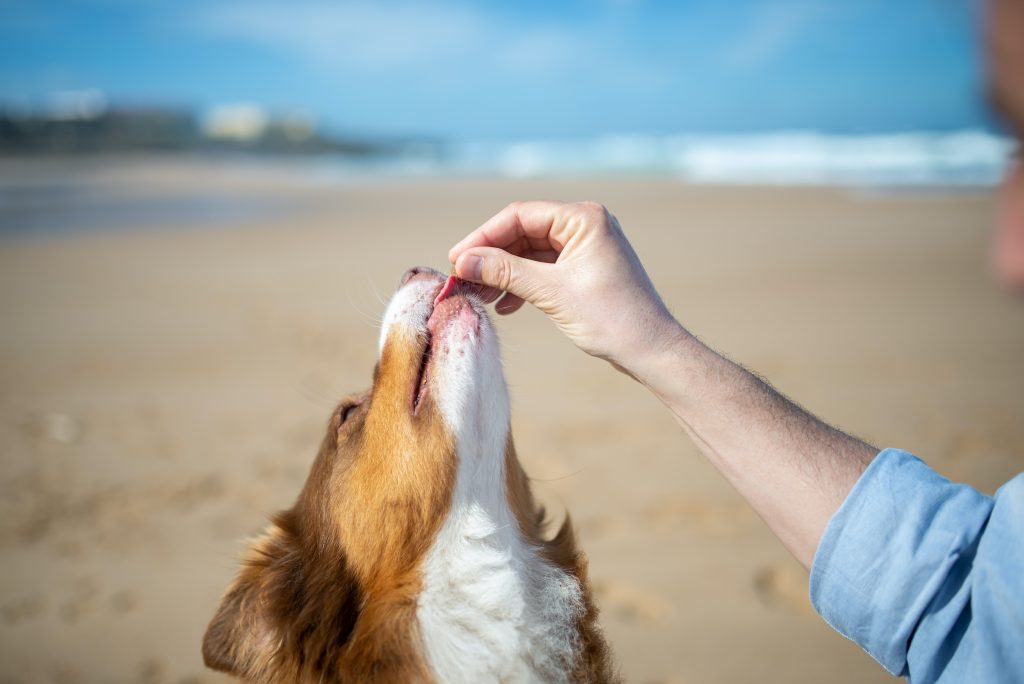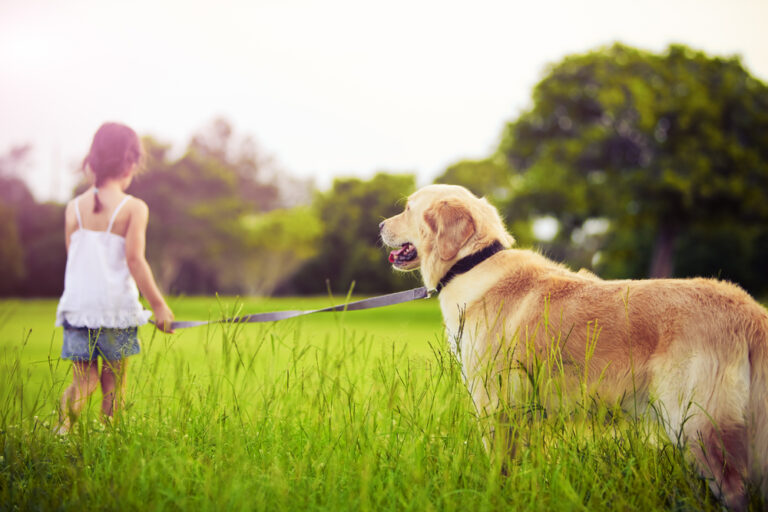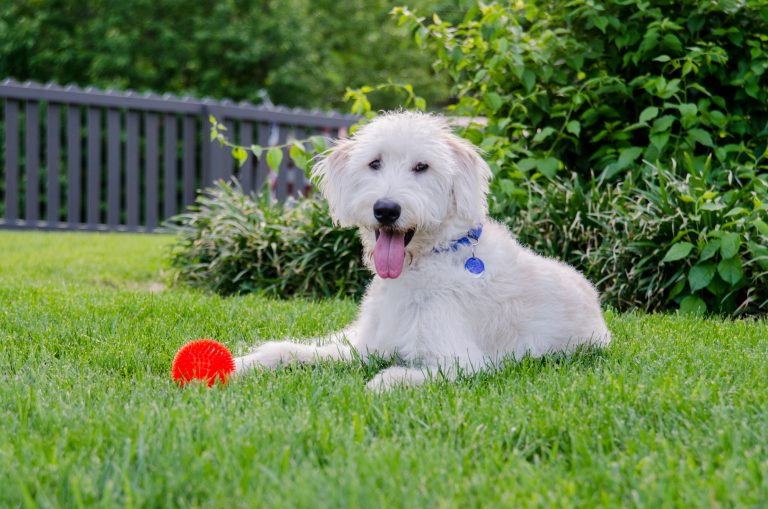Can Dogs Eat Canned Salmon? (Solved)
When I think of salmon, I think of it as healthy for my dog and me to eat. And it is because it contains many great vitamins and minerals. Canned salmon is a high-quality fish full of beneficial protein. Is canned salmon truly safe for dogs, though? It is natural for dog owners to wonder…
When I think of salmon, I think of it as healthy for my dog and me to eat. And it is because it contains many great vitamins and minerals. Canned salmon is a high-quality fish full of beneficial protein.

Is canned salmon truly safe for dogs, though? It is natural for dog owners to wonder if giving dogs canned salmon is a good idea.
There are some benefits for dogs that eat canned salmon and some types of salmon that dogs must avoid. Keep reading to find out which salmon is safe for dogs to eat.
Can dogs eat canned salmon?
Yes, dogs can eat canned salmon – has a lot of health benefits. It can be a healthy part of a canine diet given in the right-sized portion.
The right-sized portion of salmon is important because canned salmon is naturally high in sodium.
It is best to choose canned salmon without added oils or vegetable broth to limit sodium intake.
Too much salt in a dog’s diet can cause health problems. If a dog has too much salt in one sitting, it can get salt poisoning.
Salmon that is canned with water is the best choice. I use canned salmon that says, “no salt added” on the label.
If the only option is salmon with oil, I rinse and thoroughly drain the fish before feeding it to my pet.
Can dogs eat canned salmon every day?
No, dogs should not eat canned salmon every day. It should be given to dogs once or twice a week at the most.
However, small treat-sized portions of canned salmon that are packed in water could be given every day for up to a week.
Moderation is important when feeding high sodium food to dogs. Canned salmon has a high salt and heavy metal content.
Canned salmon and fresh salmon are lower in heavy metals than other types of fish.
Although, frequently giving salmon dinners can expose dogs to excessive amounts of heavy metals and chemicals.
Feeding dogs canned salmon every day will raise their salt intake to unhealthy levels.
I switch up feeding dogs canned salmon with other protein sources to avoid raising their salt intake too high.
The general rule is to give canned salmon to dogs as an occasional treat in portion-controlled amounts.
Is okay for dogs to eat canned salmon bones?
Yes, bones in canned salmon are safe for dogs to eat. The bones are cooked in a way that softens them during the cooking process to be easily eaten.
These bones are easily digested by dogs and contain the beneficial nutrient calcium.
Bones in canned salmon are generally safe and should not pose a choking hazard.
If there are a lot of bones in the salmon, I would remove the fish bones from the can of salmon.
How much salmon can a dog eat?
Canned salmon packed in water and fresh salmon is a healthy addition to a dog’s diet when fed in the right portions according to their size and shape.
Dogs can safely consume up to 10 grams of salmon (an excellent source of Omegas) for every 450-500g of body weight.
Certain types of salmon should be avoided when feeding meal-size portions of it to your dog.
Farmed salmon and Pacific salmon contain more toxins than wild-caught. I choose the healthier option of wild-caught salmon for my dogs.
If it’s fresh salmon, I remove the skin before serving it. The skin on salmon is fatty so the toxins are built up in that part of the fish.
What are the benefits of canned salmon for a dog?
Canned salmon is healthy and nutritious food for dogs. The meat contains a lot of protein and fantastic source of omega-3 fatty acids that are good for a dog’s skin coat, brain functioning, and heart health.
Omega-3s also support a healthy immune system, decrease inflammation in the body, and make the skin and coat look good.
Salmon is rich in protein and vitamins and minerals. It contains vitamins A, B, D, potassium, and selenium.
Remember that the food canning process does not preserve all of the omega-3s that can be found in non-canned salmon.
Salmon packed in water is a healthy treat choice for dogs who are overweight or have health issues– as long as it is not fed too much.
Can salmon give dogs diarrhea?
Yes, salmon can give dogs diarrhea in high amounts. Salmon is a fatty fish that should be given in small portions to prevent an upset stomach and diarrhea in dogs.
Dogs can also get diarrhea if they eat raw or undercooked salmon. The symptoms of salmon poisoning can take 6 to 10 days to show up.
A dog sick from eating raw salmon needs deworming and antibiotic treatment from a veterinarian or death will likely occur.
Signs of Salmon Poisoning:
- Vomiting
- Diarrhea
- Upset Stomach
- Lethargy
- Eye and Nose Discharge
- Fever
Is salmon or chicken better for dogs?
Chicken and salmon are both great sources of protein and vitamins for dogs.
Chicken is the most popular protein found in dog food. Some dogs have allergies to chicken dog food and in that case, salmon is a better option.
Salmon is more easily digested by dogs but it contains heavy metals and pollutants from the environment. Chicken is better to feed dogs long-term to avoid mercury poisoning from too much salmon.
Is salmon or tuna good for dogs?
Both salmon and tuna are protein-rich and healthy to feed dogs in moderated portions. Tuna has higher levels of heavy metals than salmon.
Tuna can be fed to dogs in treat-sized portions. Salmon, canned or fresh, is better to feed dogs than tuna because salmon is a smaller fish that absorbs less toxic chemicals and is less likely to induce mercury poisoning.
How to prepare salmon for your dog
I feed salmon to my dog straight from the can. Fresh salmon must be deboned before feeding it to a dog though.
Only feed dogs cooked salmon without added salt (always be mindful of the salt content), oil, or seasonings.
Fresh salmon must be fully cooked to kill parasites and prevent salmon poisoning.
Serve the appropriate portion according to the weight of the dog to avoid salt or mercury poisoning in dogs.
The appropriate portion is 10 grams of salmon for every 450-500g of a dog’s body weight.
Can dogs eat raw salmon?
No, dogs cannot eat raw salmon. Raw salmon is potentially fatal to dogs because it potentially contains a deadly parasite (neorickettsia helminthoeca parasite).
A dog with salmon poisoning disease will show symptoms within 6 to 10 days after eating the raw fish.
Salmon poisoning must be treated by a veterinarian to help the dog recover within a few days.
Symptoms of salmon poisoning include vomiting, diarrhea, fever, swollen lymph nodes, and lethargy.
A vet can determine salmon poisoning by obtaining fecal samples and will administer dewormer and antibiotics to treat the condition.
Is canned pink salmon good for dogs?
Yes, pink canned salmon is good for dogs. Pink salmon is just as nutritious as other types of salmons.
Pink salmon is a smaller type of salmon that is a healthy choice for dogs.
Since it is smaller in size, pink salmon has less fat and toxins than other types of salmon.
It’s high in protein and essential nutrients like Vitamins A, B, and D.
Can dogs eat smoked salmon?
No, smoked salmon is not healthy for dogs. Smoked salmon is potentially harmful to your canine companion because parasites can survive during the curing process of smoked salmon.
This cured smoked salmon can cause potentially fatal salmon poisoning. In addition, the salmon curing process leads to high levels of salt that are also unhealthy for dogs.
Elevated sodium levels in dogs can cause salt poisoning, so avoid feeding smoked salmon to dogs.
Is high sodium in canned salmon bad for dogs?
Yes, high sodium canned salmon is bad for dogs. Canned salmon (and other canned fish) is naturally salty and may have extra salt from added brine or broth.
Added salt in canned salmon should be avoided when serving it to dogs. Serve dogs canned salmon that is packed only with water.
Can dogs eat salmon skin?
Yes, dogs can eat salmon skin as long as it is cooked without seasoning. Make sure the salmon skin doesn’t come from polluted waters before offering it to your dog.
Remember, salmon skin contains high levels of fat so it should be offered as an occasional treat.
Conclusion
Canned salmon is healthy and convenient food for dogs. It is rich in protein, omega-3 fatty acids, and other nutrients that are good for their health.
Dogs can eat canned salmon as long as it does not contain any added salt or oils. It should be low in sodium to avoid high sodium levels and other health issues.
Canned salmon is a healthy protein low in fat and can be enjoyed by dogs once or twice a week. Dogs should not overeat salmon, but instead, have portions that align with their caloric needs.
Canned salmon contains the essential nutrients that a dog needs to thrive.





